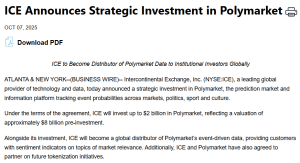Alphabet (GOOG) Stock: Surges as Google Unveils Verifiable Quantum Advantage with Willow Chip
TLDR
- Google’s Willow chip proves true quantum advantage with verifiable results.
- Quantum Echoes runs 13,000x faster, marking a new era in computation.
- Willow models molecules beyond classical NMR precision and capability.
- The chip’s quantum precision advances medicine and materials research.
- Google cements its lead in real-world quantum computing breakthroughs.
Alphabet Inc. (GOOG) shares rose 0.47% to close at $252.53 following a major breakthrough in quantum computing.
Alphabet Inc., GOOG
Google announced its quantum computer achieved a verifiable quantum advantage using the newly developed Willow chip. The advancement signals significant progress toward applying quantum systems to real-world scientific challenges.
Google Unveils Breakthrough with Verifiable Quantum Advantage
Google confirmed it successfully ran a verifiable quantum algorithm, called Quantum Echoes, on its 105-qubit Willow chip. The algorithm ran 13,000 times faster than the best classical algorithm tested on leading supercomputers. This milestone marks the first verifiable quantum advantage in the history of computation.
Unlike previous demonstrations, this result is reproducible, making it a trusted benchmark for future quantum research. The Quantum Echoes algorithm tests both quantum complexity and output precision, requiring robust hardware performance. Google achieved this by refining its chip’s error suppression and boosting operational speed.
The experiment involved a four-step echo process using constructive interference to measure how quantum signals evolve and return. This allowed researchers to accurately map the spread of disturbances across the chip. The verification enhances confidence in the future scalability and reliability of quantum computing.
Willow Chip Enables Precision Modeling Beyond Classical Capability
Willow’s capabilities enabled the execution of Quantum Echoes, a high-precision quantum algorithm that can model complex physical systems. The chip demonstrated enhanced error correction and rapid processing during both forward and reverse signal execution. This process revealed how molecular and magnetic structures react to disturbances.
Google tested Quantum Echoes on two molecules with 15 and 28 atoms respectively, in partnership with UC Berkeley. Results confirmed accurate geometric modeling that aligned with, and exceeded, traditional Nuclear Magnetic Resonance (NMR) methods. This validated the algorithm’s capability to uncover additional structural data beyond classical NMR.
The research aims to transform chemical and materials modeling by expanding molecular insight. Scientists anticipate widespread use of the chip’s modeling capabilities in fields such as medicine, materials engineering, and quantum chemistry. Such utility underscores the chip’s real-world applications and its potential future impact.
Quantum Computing Positions Itself for Scientific and Technological Discovery
Google’s achievement highlights a shift in quantum computing from theory toward scientific problem-solving. The system measured complex atomic interactions with high accuracy and offered scalable results. Quantum-enhanced NMR could soon help in drug discovery and advanced materials research.
The demonstration marks a transition from benchmarks to solving problems relevant to chemistry and biology. Applications include identifying molecular binding in pharmaceutical development and analyzing novel battery materials. The potential impact spans critical scientific domains with global relevance.
Quantum computing now shows practical potential to unlock insights into atomic behavior, previously inaccessible to supercomputers. Google’s success with the Willow chip sets a new standard in the quantum field. This positions Alphabet at the forefront of next-generation computing breakthroughs.
The post Alphabet (GOOG) Stock: Surges as Google Unveils Verifiable Quantum Advantage with Willow Chip appeared first on CoinCentral.
You May Also Like

Bitcoin Breaks Below $100K But Stablecoin Inflows Hint at Quiet Re-Risking

Polymarket To Provide UFC, Zuffa Boxing With Real-Time Fan Predictions
